Peter Dutton should listen to John Howard’s political advice

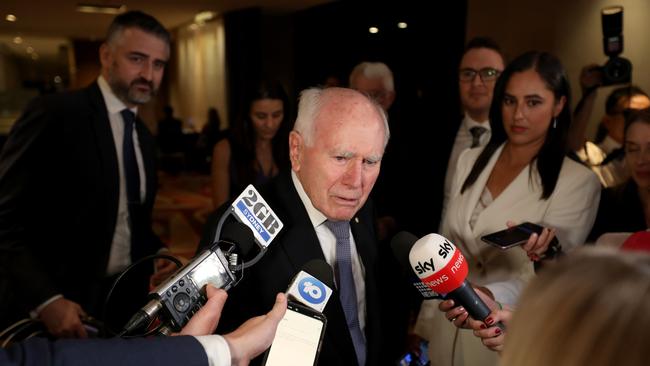
No surprise either that on Sky News Australia, and in other conservative media, the answer to the Coalition’s electoral woes is to move right. As if all the research isn’t showing that voters at the Aston by-election last Saturday week, the NSW state election the Saturday before and the federal election almost 12 months ago were rejecting the Liberals as out of touch with modern Australia.
It turns out a couple of old white males who have won a few elections for the Coalition might have more thoughtful prescriptions. For a start, how about doing politics better?
Former Liberal Party federal director Brian Loughnane, with Senator Jane Hume, and four-time election-winning prime minister John Howard set out clear prescriptions in the party’s review of the 2022 federal election and in Howard’s new book, A Sense of Balance.
First, the problem. The Coalition is out of power federally, in both territories and in every mainland state. Tasmania is the holdout.
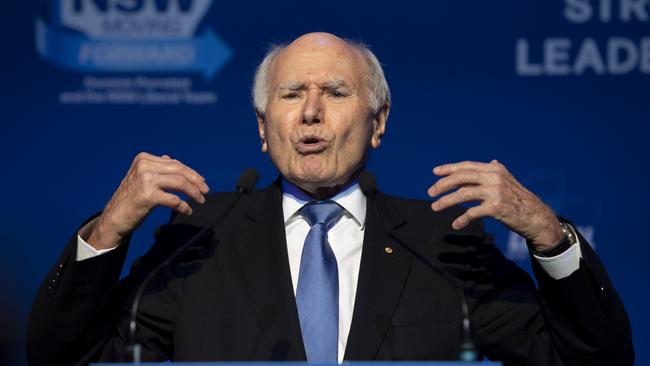
Worse for the Coalition than a series of election losses since 2020 are changes in urban demography that are driving voters to the teals and Greens. Sure, conservatives arguing the Libs need to move right can point to the Nationals’ vote holding up federally and in NSW, and they can fixate on a drift from the Coalition to minor parties on the right, such as One Nation and Clive Palmer’s United Australia Party. Yet no breakaway group on the right has a federal seat in the lower house.
Against such arguments from conservatives, the Liberals hold only a fifth of all capital city seats federally. Yet it is in the capitals that most Australian seats lie. While Queensland has been kind to the Coalition, it cannot win elections without picking up seats in Sydney and Melbourne.
Last year, the Coalition lost nearly all its inner metropolitan seats: six to Labor, five to the teals and one to the Greens. It holds only four such seats nationally.
Worse, according to Loughnane and Hume, was the party’s performance among female professional voters. It holds only three of the top 30 electorates for professional women, compared with 15 previously.
“In the top 50 seats by female professionals, the Liberal Party holds only 10 where previously it held 25. A majority of women preferred Labor in all age segments (18-34, 35-54 and 55+),’’ the review noted.
Howard has criticised former PM Scott Morrison for his parliamentary attack on former Australia Post chief executive Christine Holgate.
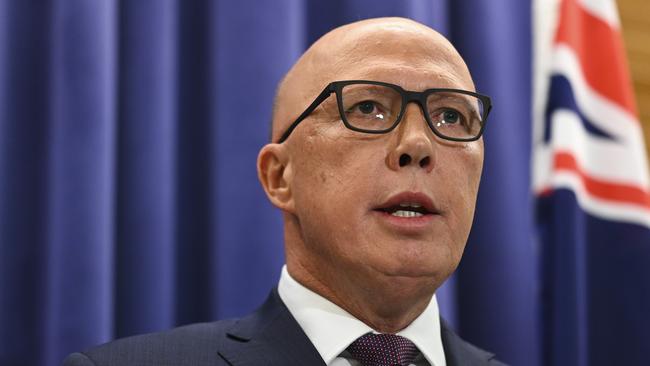
That attack fed into a media pile-on by the ABC about the sexism of Coalition men. Morrison did not successfully challenge that pile-on.
Howard told this paper’s Troy Bramston on August 13 last year that Morrison’s political management “was often defective”. Howard singled out the Holgate issue, plus Morrison’s failure to legislate an integrity commission when he had already produced a bill for one, and his failure to pass a religious discrimination bill.
Howard has often spoken of a decline in political advocacy skills by modern leaders. He has argued compellingly that Morrison failed to make a coherent case for re-election in 2022 apart from on economic competence. This was not enough after three terms and three separate PMs in nine years.
Bramston in his weekly column last Tuesday discussed the ageing of the Coalition vote, pointing out the large and often pro-Coalition baby boomer cohort is now “outnumbered by Millennials (born 1981-96) and Generation Z (1997-2012). Just 25 per cent of Millennials and 26 per cent of Gen Z voted Coalition at the last election.”
The review criticised the increasing factionalism of the party. Howard’s book is withering about the factional game playing in NSW that left the party without endorsed candidates only weeks before Morrison called the election.
Both Howard and the review called for more grassroots membership, better state organisational campaign techniques, and preselections that don’t alienate local voters, as the enlistment of high profile candidate Roshena Campbell from the other side of Melbourne appears to have done in Aston.
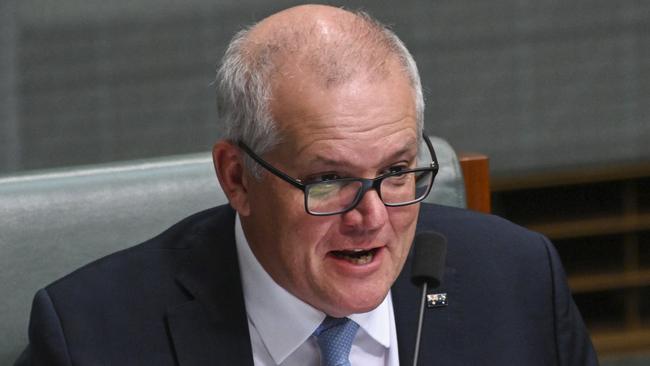
It is also clear Morrison’s creation of national cabinet raised the profile of premiers who were able to claim successfully in the Queensland, West Australian and Victorian elections that they had kept their electorates safe.
Yet at the federal election Morrison was unable to persuade voters the most important factor in any Australian jurisdiction’s handling of Covid was his decision to close the international border to flights from China in early 2020.
It is on the China issue that Morrison received no credit for leading the first resistance globally to Chinese chauvinism after the escape of the virus in Wuhan in late 2019.
Morrison’s approach culminated in the commitment to AUKUS, fulfilled by new PM Anthony Albanese last month. This is the most import foreign policy and military decision here since World War II.
Yet Morrison, and Malcolm Turnbull before him with his foreign interference legislation and banning of Huawei from the 5G telecommunications rollout, were unable to manage the politics of Chinese intimidation.
The election review found that in the top 15 seats by Chinese ancestry, the swing against the Liberal Party (on a two-party-preferred basis) was 6.6 per cent, compared with 3.7 per cent in other seats. “There are more than 1.2 million people of Chinese heritage living in Australia today,” the review noted.
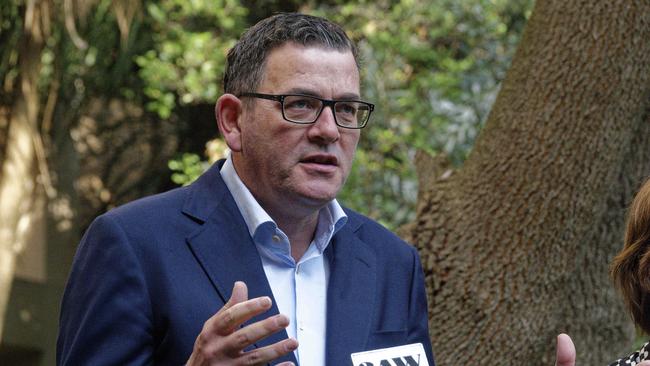
In Aston, more than 14 per cent of voters are of Chinese background, according to Sky News Australia presenter Andrew Bolt, and more than 11 per cent speak Mandarin or Cantonese at home.
Victorian Premier Dan Andrews played the Chinese vote brilliantly. The local Chinese-language newspaper carried a page one report from Andrews’ trip to China in the week leading up to the Aston by-election. Andrews took no mainstream journalists and the local Chinese community swung firmly behind Labor’s Mary Doyle.
Opposition Leader Peter Dutton was lampooned on Twitter for saying on Insiders last Sunday that a Dutton-led federal Liberal Party stands for aspiration, entrepreneurialism, small businesses, national security and “cleaning up after a Labor government when we get back into government”.
“We make decisions that allow families to keep more of their own money,” he said.
These were timeless values, and Dutton said he did not propose to change “the fundamentals of our party”.
He is right. Yet negativity is not the only way to succeed in opposition. Howard did not say no to everything that Hawke and Keating proposed. He has often claimed, correctly, that the great reform era of Australian politics was possible only because the Coalition played a constructive role from opposition.
Why would Dutton last month not have sought to modify the government’s safeguard mechanism to cap emissions from the nation’s top 215 emitters? After all, the mechanism was proposed by the former Coalition government and the Liberals could have passed a better deal with the new government rather than force it to deal with Adam Bandt’s Greens.
Saying no is not an end in itself. Patricia Karvelas on ABC RN Breakfast on Thursday asked Noel Pearson how he and other Aboriginal leaders would feel if the voice referendum was lost after the Coalition decision on Wednesday to oppose it.
A better question? How will the Liberal Party and Dutton look if the referendum succeeds?



Surprise, surprise. Journalists who never have a good word to say about the Coalition think the Liberal Party needs to be more like Labor and the Greens.